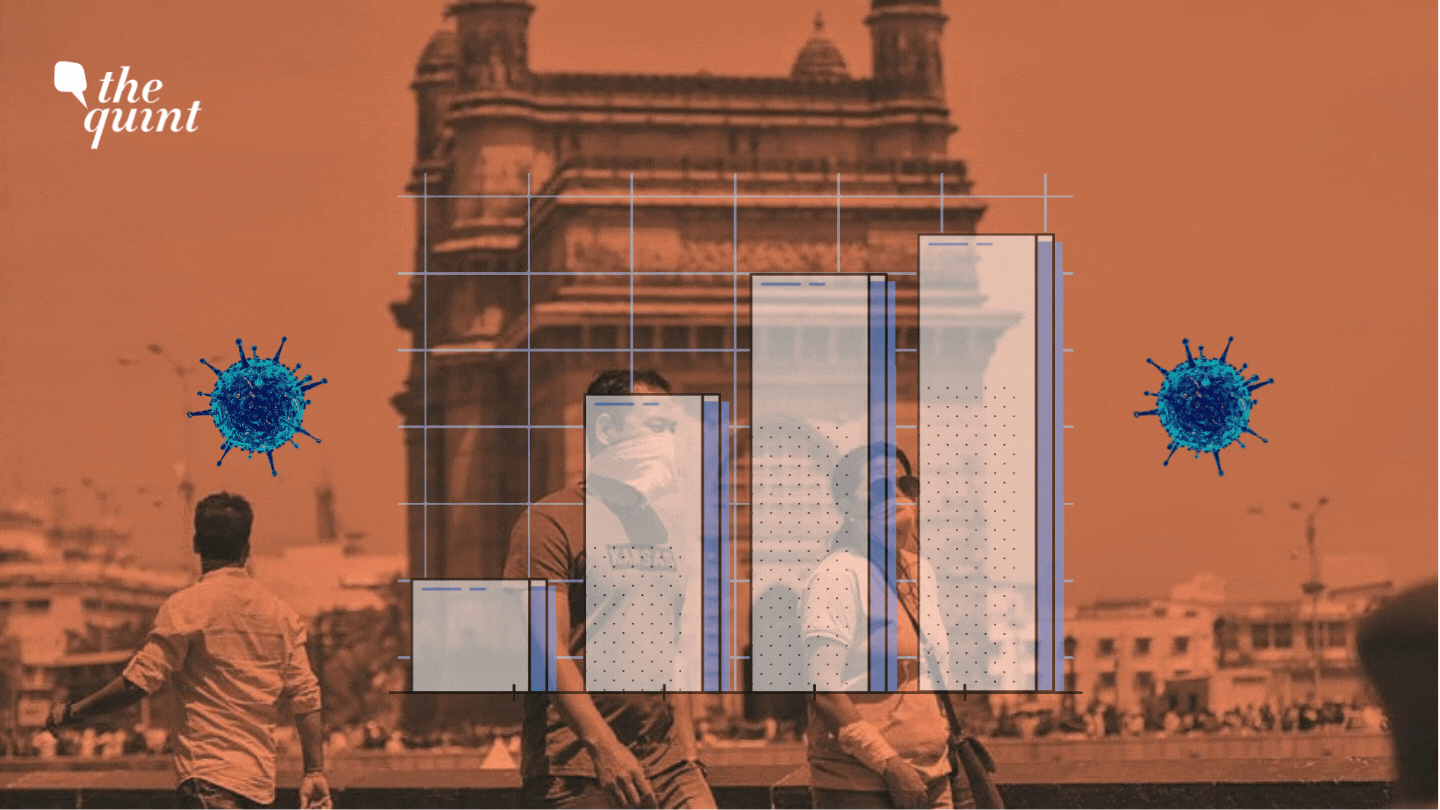As Mumbai witnessed a marginal but a consistent drop in daily COVID-19 infections for over a week, doctors and experts have hinted that India's financial capital might have crossed the peak of the third wave of the pandemic.
"Data suggests that COVID-19 transmission in Mumbai has peaked, at least for now," says Murad Banaji, a mathematician studying disease modelling.
He told The Quint that "daily new cases are falling quite sharply and that in the last few days there has also been a clear fall in test positivity." Banaji said that this is the case even after fluctuations in the number of RT-PCR tests and the number of rapid tests conducted is taken into account.
Dr Manindra Agarwal, Professor at IIT-Kanpur and the man behind IIT's Sutra Model for pandemic predictions, made similar observations. According to Agarwal, the Omicron fuelled third-wave in Mumbai peaked on 12 January.
"Mumbai: peaked on 12th Jan, two days before model prediction. Peak value about 75% of model prediction. Numbers are decreasing rapidly now, as expected," he wrote on Twitter.
Virologist and member of Maharashtra's state COVID-19 task force, Dr Om Shrivastava also told The Quint that while enough data is not available, going by the current figures it is reasonable to say that Mumbai has crossed the peak of the third wave.
"Daily cases are declining. Going by the numbers we are seeing right now, it is reasonable to say that we've crossed the third wave. We, however, don't have enough data at present and comparing India with other countries might not always work," he says.
The Quint did some number crunching to understand the current COVID-19 situation in the Maximum City.
What Are The Numbers Saying?
While Mumbai recorded its highest ever daily positive cases on 8 January with 20,318 cases, it is after 12 January that the daily positive cases as well as the number of hospitalisations have steadily declined.
The number of daily cases went down from 16,420 on 12 January to 5,956 on 17 January. Similarly, the number of hospitalisations also peaked on 8 January when 1,257 people were hospitalised. On 12 January, 916 people were hospitalised, and on 17 January, the number went down to 497.
Here, Banaji points out that while daily COVID-19 cases may have peaked, hospitalisation and COVID-related deaths might take some time to come down.
"The number of Covid-19 patients in ICU beds and ventilator beds is still rising, although there has been a slight recent drop in the number of Oxygen beds occupied. We expect hospitalisations to take some time to come down even if transmission has peaked. Daily official Covid-19 deaths are still rising: the latest week has seen an average of around eight deaths per day, up from just one death per day two weeks ago."Murad Banaji, Mathematician
The Math Behind The Drop in Daily Testing
It can be argued that the drop in daily positive cases is due to the drop in daily testing. On 8 January, Mumbai conducted 71,019 tests, which dropped to 59,242 on 10 January and then went up to 67,339 tests on 12 January only to come down to 47,574 tests on 17 January.
Banaji, however, says that a more accurate parameter to understand if transmission in the city has peaked, would be the Test Positivity Rate (TPR).
What After the Peak?
Data suggests that even if COVID-19 transmission in Mumbai peaked on 12 January, the descent in the coming days, might be slower than what we saw in the previous waves.
London, for instance, passed the peak on 20 December 2021, but the cases stayed high for a while.
Banaji says that if a similar situation arises in Mumbai, it might create problems for those who are vulnerable.
"During this wave, some places have seen a relatively slow descent after COVID-19 cases peak. The reasons for the slow reduction in cases are unclear, and it's hard to predict whether Mumbai will see a similar pattern. When infections are slow to fall, then even if life returns to normal for many people, the worries remain."Murad Banaji, Mathematician
"This is especially true for the families of those who are most vulnerable such as the very elderly, people with other illnesses, and those who are immunocompromised," he adds.
(At The Quint, we question everything. Play an active role in shaping our journalism by becoming a member today.)
